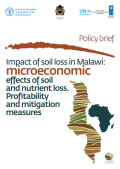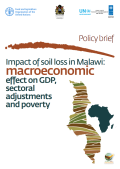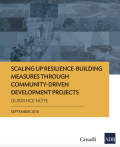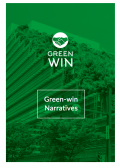
This policy brief, Impact of Soil Loss in Malawi: Microeconomic effects of soil and nutrient loss, addresses the suitability and financial viability of various interventions to mitigate the impacts of both soil and nutrient loss within Malawi.

This policy brief, Impact of Soil Loss in Malawi: Macroeconomic effect on GDP, sectoral adjustments and poverty, combines findings from a recent independent report based on microeconometric and computable general equilibrium analysis. The study aims to assess both direct and indirect economic impacts of soil loss at the aggregate level, providing effects on the GDP, poverty, terms of trade and sectoral production.
Scaling Up Resilience-Building Measures through Community-Driven Development Projects: Guidance note

This Asian Development Bank guidance note, Scaling Up Resilience-Building Measures through Community-Driven Development Projects, proposes a framework that recommends five key considerations that should be factored in the design and implementation of community-driven development projects to ensure that they deliver on scaling up of resilience-building measures.

The booklet Green-win Narratives developed through the course of the GREEN-WIN project within the Global Dialogue and the detailed studies carried out by the project partners. The GREEN-WIN project is a major international transdisciplinary research collaboration supported by the EU. It applies a solution-oriented approach targeted at increasing the understanding of links between climate action, economic development, and sustainability.
This report, based on research from the Nature Conservancy, the University of Minnesota and 11 other organizations, explores whether it is possible to achieve a future where the needs of both people and nature are advanced. It projects the state of the world in 2050 if development progresses in a “business-as-usual” fashion, and what it would look like if a sustainable path was implemented with a series of fair-minded and technologically viable solutions to the challenges that lie ahead.
